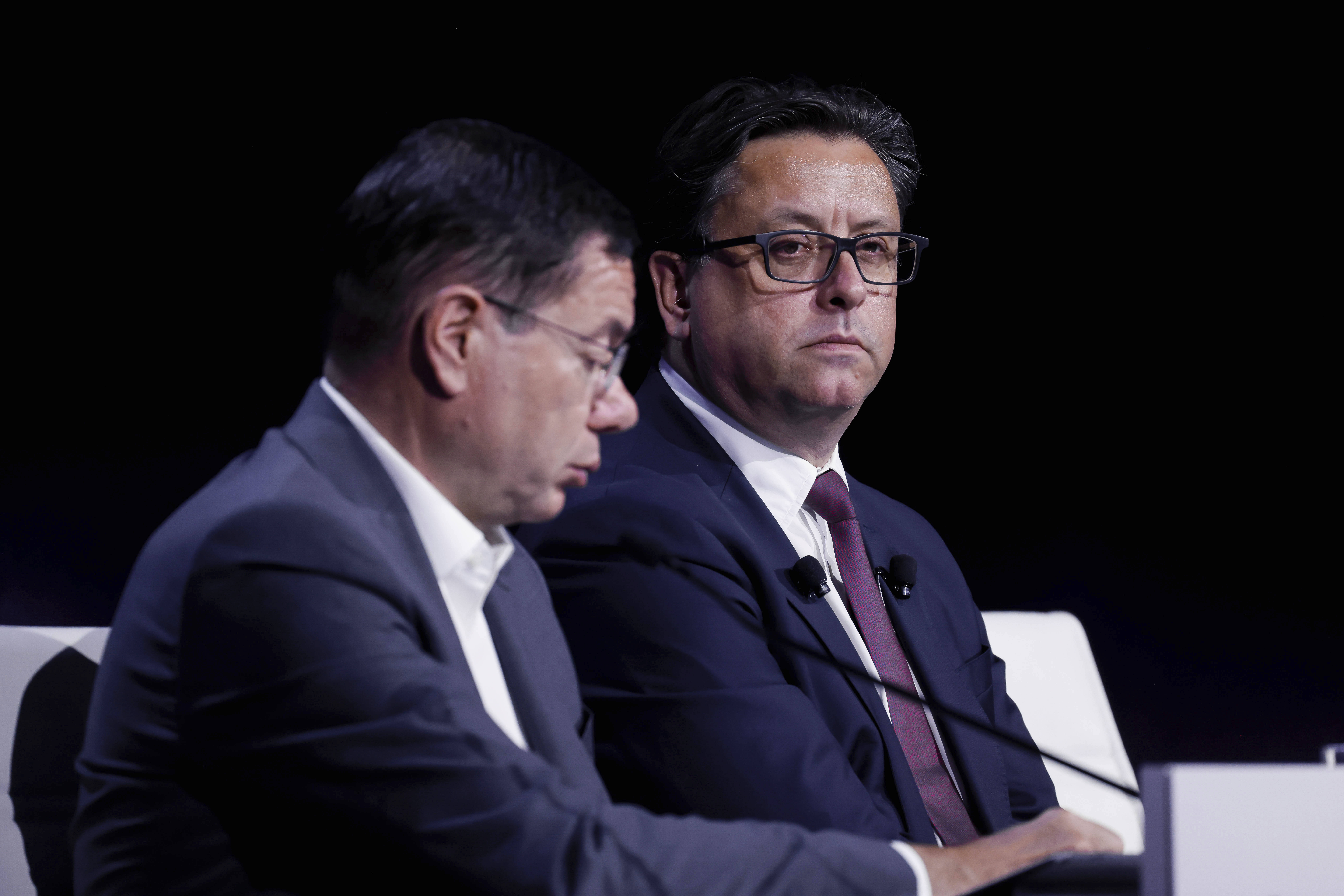
Sanofi CFO Jean-Baptiste de Chatillon (L) and CEO Paul Hudson (Romuald Meigneux/Sipa via AP Images)
Sanofi sees downtick in flu sales as it preps for launch of RSV antibody
Sanofi expects its RSV antibody jointly developed with AstraZeneca will be available next season, executive VP of vaccines Thomas Triomphe announced on the company’s quarterly …
Sign up to read this article for free.
Get free access to a limited number of articles, plus choose newsletters to get straight to your inbox.